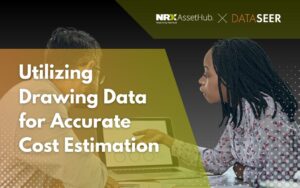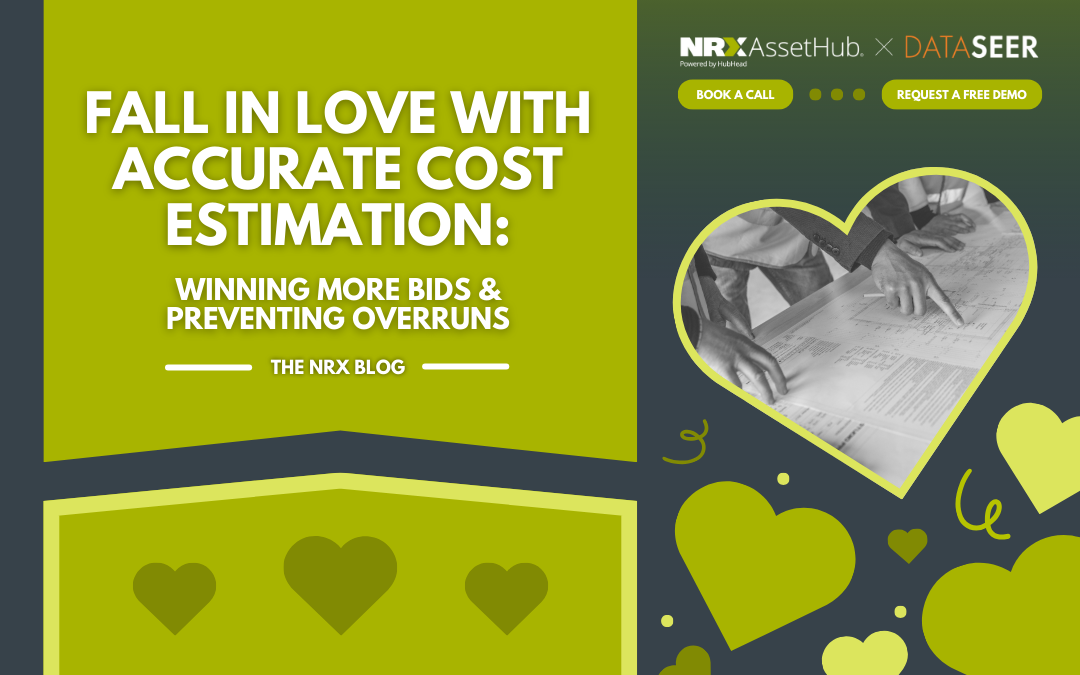Cost estimation doesn’t have to be a source of frustration and uncertainty. Just like in relationships, success comes down to trust, precision, and a commitment to long-term value. Organizations that embrace smarter, data-driven estimation methods can win more bids, prevent budget overruns, and create sustainable growth.
The question is—how do you go from guesswork to a cost estimation process you can truly rely on?

Breaking Up with Bad Estimation Practices
Many organizations struggle with outdated or inefficient estimation methods, leading to:
- Inflated bids due to excessive contingencies
- Underbidding that results in unexpected financial losses
- Scope creep driving budgets far beyond original estimates
- Slow estimating processes that can’t keep up with demand
The solution isn’t just about improving accuracy; it’s about transforming cost estimation into a competitive advantage.
A Smarter Approach to Cost Estimation
To eliminate costly mistakes and improve bid win rates, organizations need to integrate modern tools, real-time data, and scalable processes into their cost estimation strategy.
1. Say Yes to Digitalization & Automation
Traditional estimation methods rely heavily on historical benchmarks, but modern projects require a data-driven approach. By leveraging digital solutions such as Enterprise Asset Management (EAM) systems and Digital Twins, businesses can generate estimates based on actual drawing data and real-world project specifications—not just past assumptions.
2. Build Trust with More Accurate, Transparent Estimates
Just as transparency builds strong relationships, it also strengthens project estimation. Teams need real-time insights from SAP Plant Maintenance, IBM Maximo, Oracle EAM, and other industry-leading platforms to align cost projections with live project data.
A single source of truth allows teams to track changes, anticipate adjustments, and ensure estimates remain reliable as projects progress.

3. Stop Guessing & Start Winning More Bids
Instead of padding bids with excessive contingencies, companies can use predictive analytics and AI-powered cost estimation tools to create competitive yet realistic proposals. By integrating structured estimation workflows, teams can:
- Identify risks before submitting a bid
- Accurately allocate resources and budgets
- Reduce unnecessary contingencies while ensuring financial safety
This balance increases win rates while maintaining profitability, giving organizations an edge in lump sum project bidding.
4. Scale Your Estimation Process Without the Growing Pains
With increasing project demands, cost estimation needs to be fast, scalable, and adaptable. Manual processes and spreadsheets can’t keep up. Instead, companies should invest in:
- Cloud-based estimating tools for real-time collaboration
- Automated data extraction from drawings and digital models
- AI-driven forecasting to adjust estimates based on market conditions
This ensures that no matter how many estimates a company needs to produce, each one remains accurate and consistent.

The Key to a Happier, More Profitable Future
By embracing digitalization, automation, and real-time data, organizations can finally move past outdated cost estimation struggles. The benefits are clear:
- More accurate estimates that reduce budget overruns
- Higher bid win rates with competitive, data-backed proposals
- Faster estimation workflows that keep up with growing demand
- Stronger project outcomes with fewer surprises
When organizations stop relying on outdated estimation methods and start using smart, scalable solutions, cost estimation becomes something they can finally trust—just like a great relationship. It’s time to fall in love with better cost estimation and leave project heartbreak behind for good.
Utilizing Drawing Data for Accurate Cost Estimation

The Challenges of Table Data Extraction

The Tedious Nature of Creating Piping Lists Manually

Share this article

